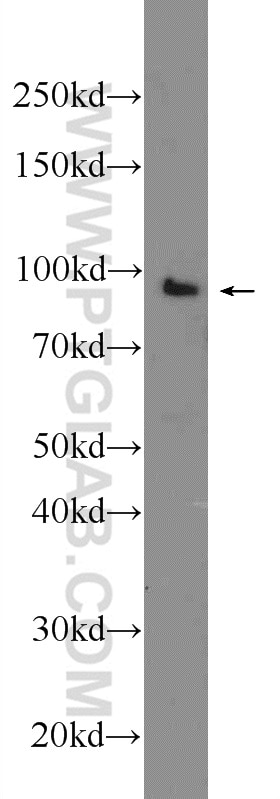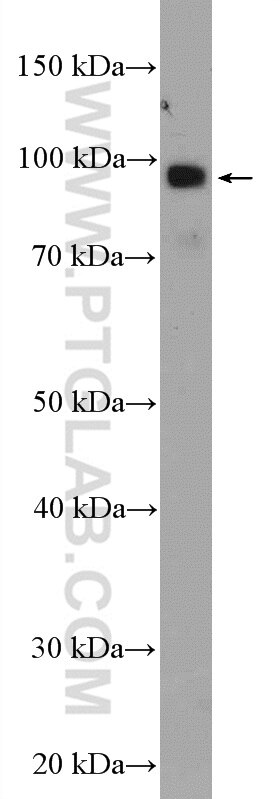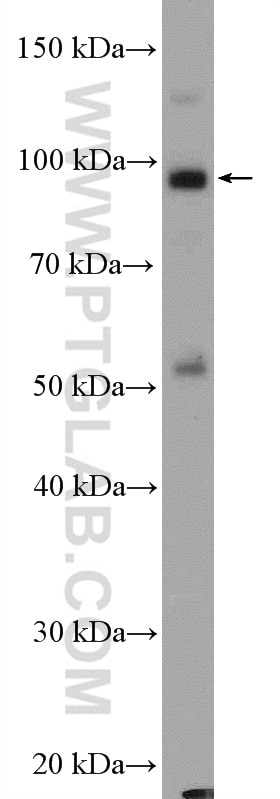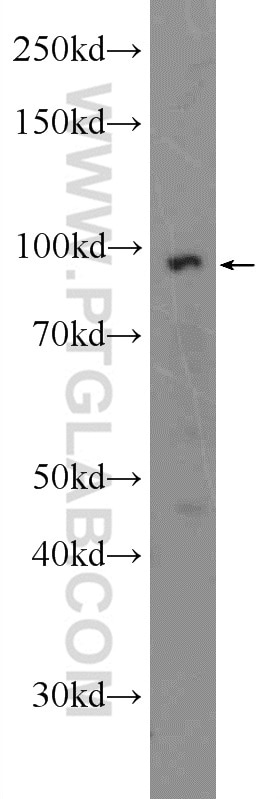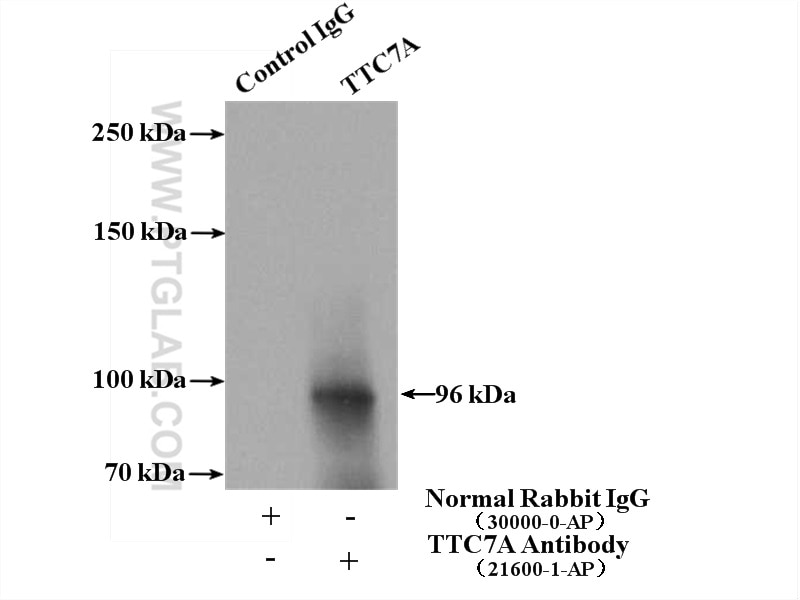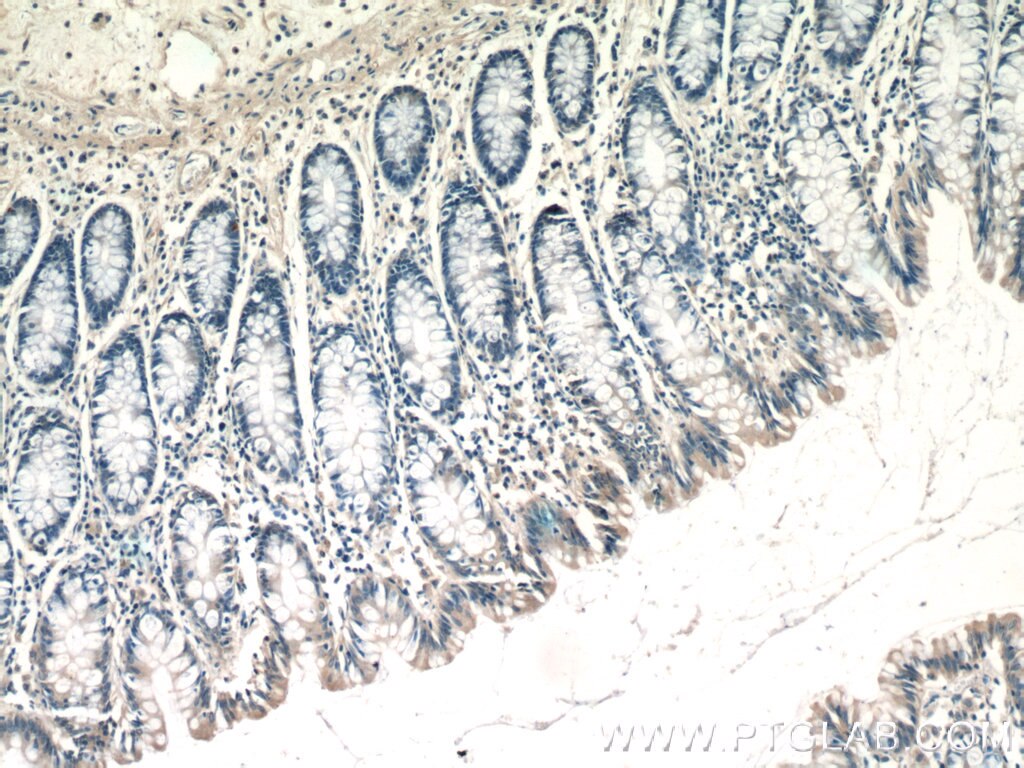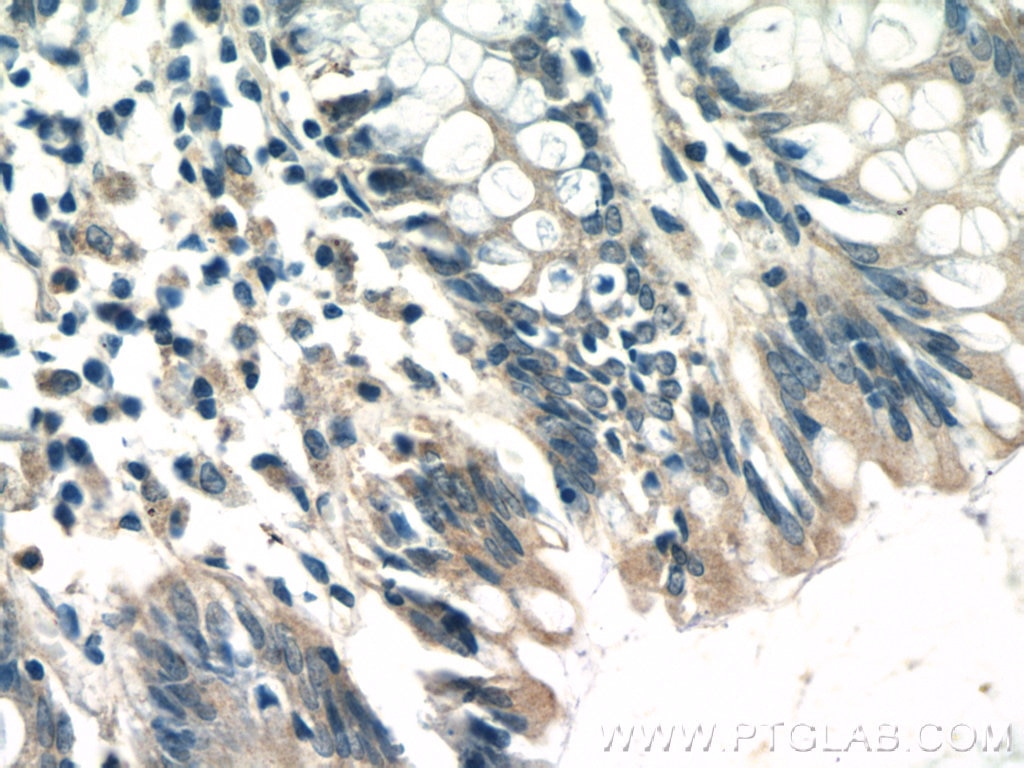TTC7A Polyklonaler Antikörper
TTC7A Polyklonal Antikörper für IHC, IP, WB,ELISA
Wirt / Isotyp
Kaninchen / IgG
Getestete Reaktivität
human, Maus
Anwendung
WB, IP, IHC, IF
Konjugation
Unkonjugiert
Kat-Nr. : 21600-1-AP
Synonyme
Galerie der Validierungsdaten
Geprüfte Anwendungen
| Erfolgreiche Detektion in WB | K-562-Zellen, Maus-Dünndarmgewebe, Maus-Kolongewebe, PC-3-Zellen |
| Erfolgreiche IP | K-562-Zellen |
| Erfolgreiche Detektion in IHC | humanes Kolongewebe Hinweis: Antigendemaskierung mit TE-Puffer pH 9,0 empfohlen. (*) Wahlweise kann die Antigendemaskierung auch mit Citratpuffer pH 6,0 erfolgen. |
Empfohlene Verdünnung
| Anwendung | Verdünnung |
|---|---|
| Western Blot (WB) | WB : 1:200-1:1000 |
| Immunpräzipitation (IP) | IP : 0.5-4.0 ug for 1.0-3.0 mg of total protein lysate |
| Immunhistochemie (IHC) | IHC : 1:20-1:200 |
| It is recommended that this reagent should be titrated in each testing system to obtain optimal results. | |
| Sample-dependent, check data in validation data gallery | |
Veröffentlichte Anwendungen
| WB | See 1 publications below |
| IHC | See 3 publications below |
| IF | See 1 publications below |
Produktinformation
21600-1-AP bindet in WB, IP, IHC, IF TTC7A und zeigt Reaktivität mit human, Maus
| Getestete Reaktivität | human, Maus |
| In Publikationen genannte Reaktivität | human |
| Wirt / Isotyp | Kaninchen / IgG |
| Klonalität | Polyklonal |
| Typ | Antikörper |
| Immunogen | TTC7A fusion protein Ag16212 |
| Vollständiger Name | tetratricopeptide repeat domain 7A |
| Berechnetes Molekulargewicht | 858 aa, 96 kDa |
| Beobachtetes Molekulargewicht | 96 kDa |
| GenBank-Zugangsnummer | BC114365 |
| Gene symbol | TTC7A |
| Gene ID (NCBI) | 57217 |
| Konjugation | Unkonjugiert |
| Form | Liquid |
| Reinigungsmethode | Antigen-Affinitätsreinigung |
| Lagerungspuffer | PBS mit 0.02% Natriumazid und 50% Glycerin pH 7.3. |
| Lagerungsbedingungen | Bei -20°C lagern. Nach dem Versand ein Jahr lang stabil Aliquotieren ist bei -20oC Lagerung nicht notwendig. 20ul Größen enthalten 0,1% BSA. |
Hintergrundinformationen
TTC7A (TPR repeat protein 7A) is expressed in enterocytes within the duodenum, ileum, and colon, and has a role in enterocyte survival and function. Mutations in the TTC7A gene can result in a spectrum of intestinal disease, including multiple intestinal atresia (MIA) and very early onset inflammatory bowel diseases (VEOIBD). Functional analysis revealed that TTC7A binds to and facilitates the transport of PI4KIIIa from the trans-Golgi to the plasma membrane, while loss of TTC7A results in dysregulation of PI4KIIIa signaling. This antibody specially recognizes endogenous TTC7A. (24417819)
Protokolle
| Produktspezifische Protokolle | |
|---|---|
| WB protocol for TTC7A antibody 21600-1-AP | Protokoll herunterladen |
| IHC protocol for TTC7A antibody 21600-1-AP | Protokoll herunterladen |
| IP protocol for TTC7A antibody 21600-1-AP | Protokoll herunterladen |
| Standard-Protokolle | |
|---|---|
| Klicken Sie hier, um unsere Standardprotokolle anzuzeigen |
Publikationen
| Species | Application | Title |
|---|---|---|
Gastroenterology Mutations in tetratricopeptide repeat domain 7A result in a severe form of very early onset inflammatory bowel disease. | ||
Front Immunol A Novel Homozygous TTC7A Missense Mutation Results in Familial Multiple Intestinal Atresia and Combined Immunodeficiency. | ||
J Clin Immunol Bialellic Mutations in Tetratricopeptide Repeat Domain 7A (TTC7A) Cause Common Variable Immunodeficiency-Like Phenotype with Enteropathy. |
